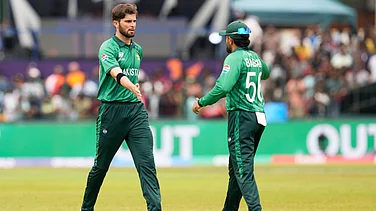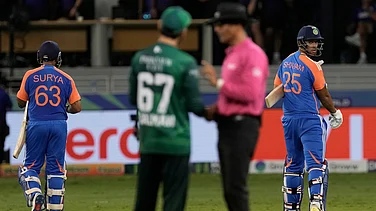MATCHFIXING doesn't necessarily mean that a team has to lose—or win—for the spoils to be shared. Thanks to spread betting, a revolutionary and potentially dangerous form of gambling, it can take place during the course of the match, without having any impact on the final outcome. And with no one but the culprit/s knowing. "In horse racing, punters can lay a bet only on the outcome. They cannot lay a bet on which horse will be ahead at some point of the race. Not so in cricket," says a Mumbai bookie. "Here, you can bet all through the match. And not just on the result. You can bet on a batsman hitting a six, on a bowler bagging a wicket. You can bet on an umpire calling off play for a over due to bad weather. You can even bet on a run-out.... It's just between the player and bookie," he explains.
Thought up in the late '80s by a group of British stock exchange traders, who felt the principles of speculation on company stocks could be applied to cricket, spread betting opens up incredible possibilities. In essence, the punter can take a position on the success or failure of a team 'and/or' individuals, just like buying a share. And it's just arrived in India.
First used in football, spread betting is now being applied to cricket as well, because of its scoring system and because whole games can turn on a single over. As the 1996
Wisden notes: "The great attraction of spread betting is that the more right you are, the more you win. The unfortunate corollary is that the more wrong you are, the more you lose." Spread betting is so simple, it has a flip side: whole sides aren't needed to fix a match. One player is enough. "A four, a six, a wicket, a run-out and crores can change hands," says the bookie. The going rate was 52 paise during the West Indies match when India was sailing at 126 for one. So, for every rupee invested, you could get back 52 paise. Speculation on the next few overs could have involved crores. " Point note kiya jaye , Milord."


























